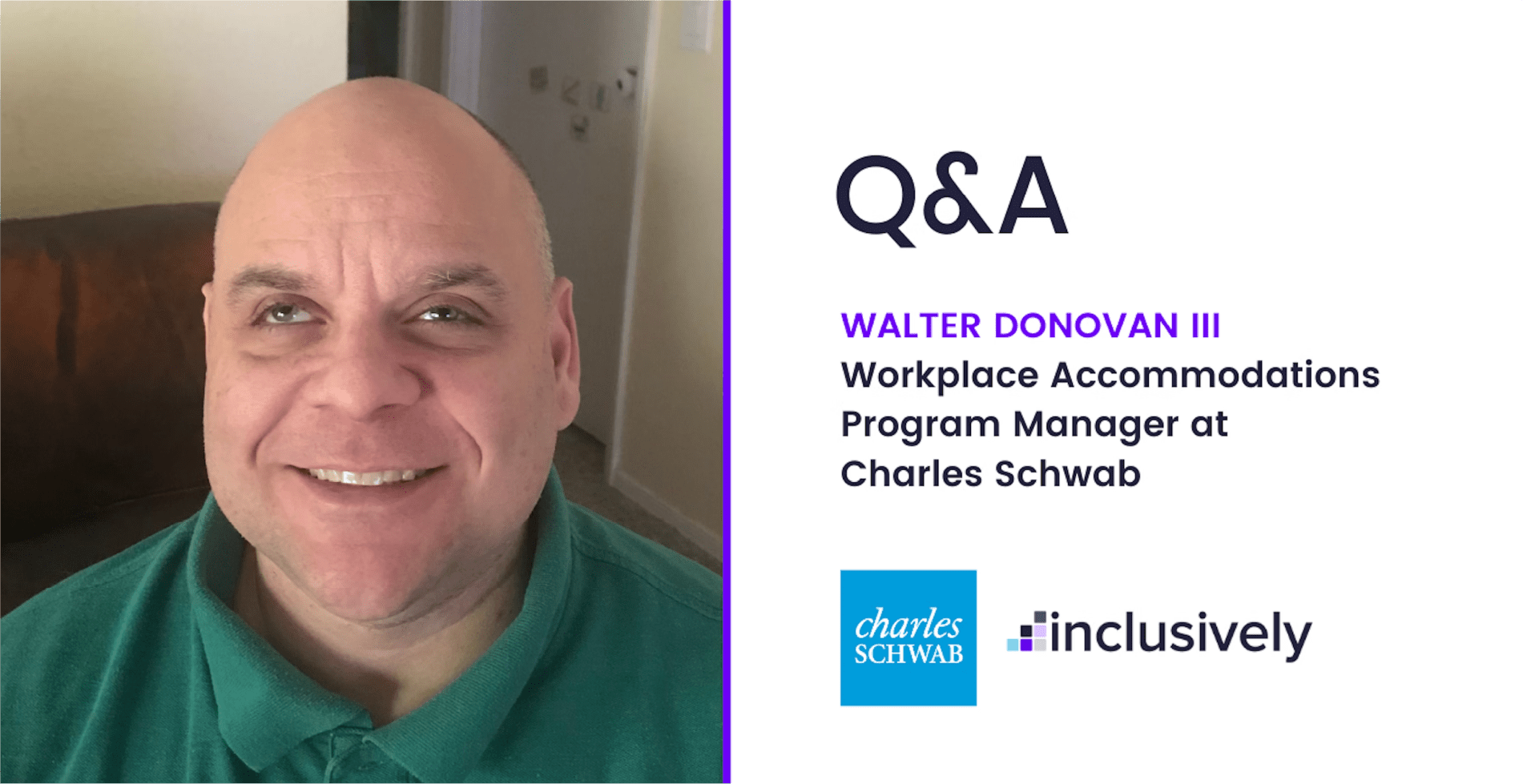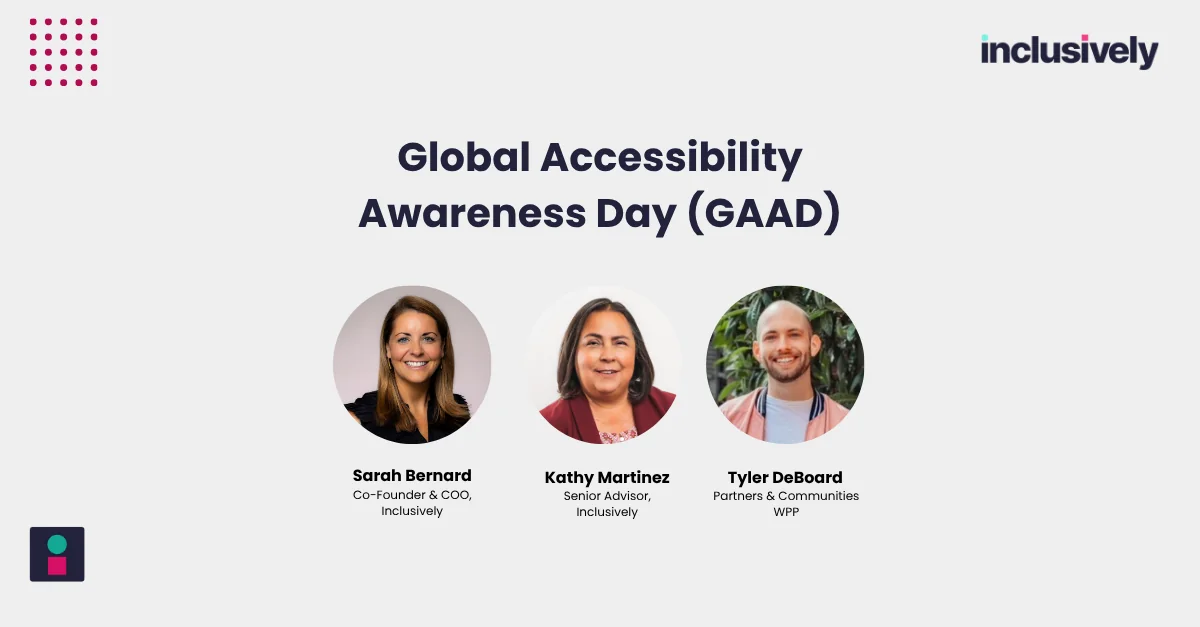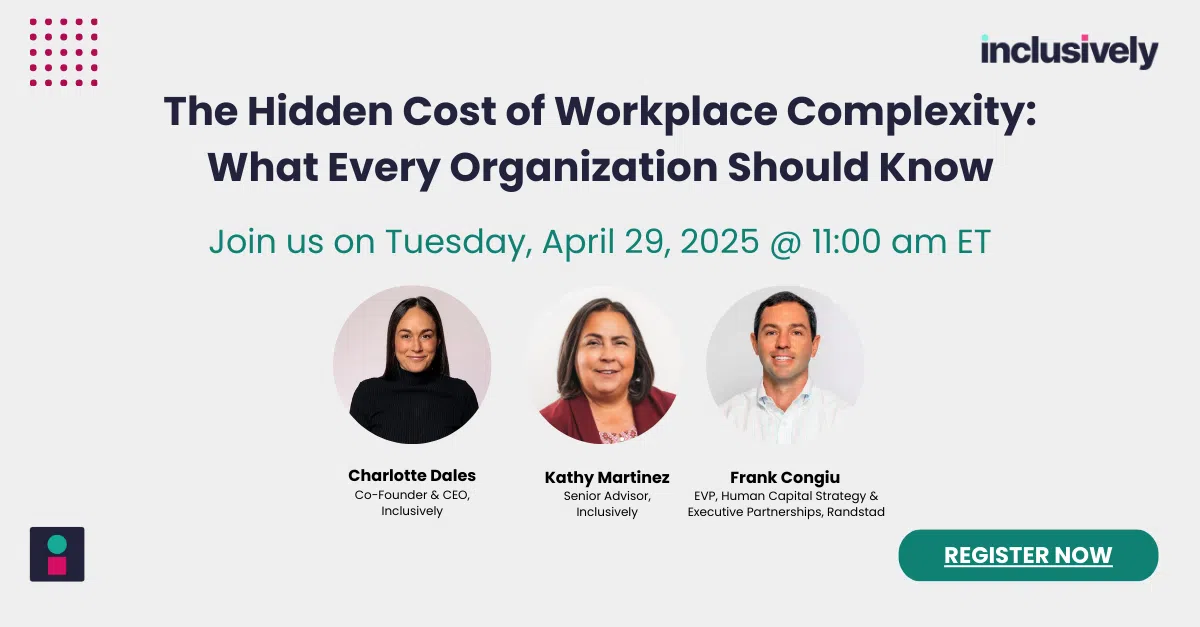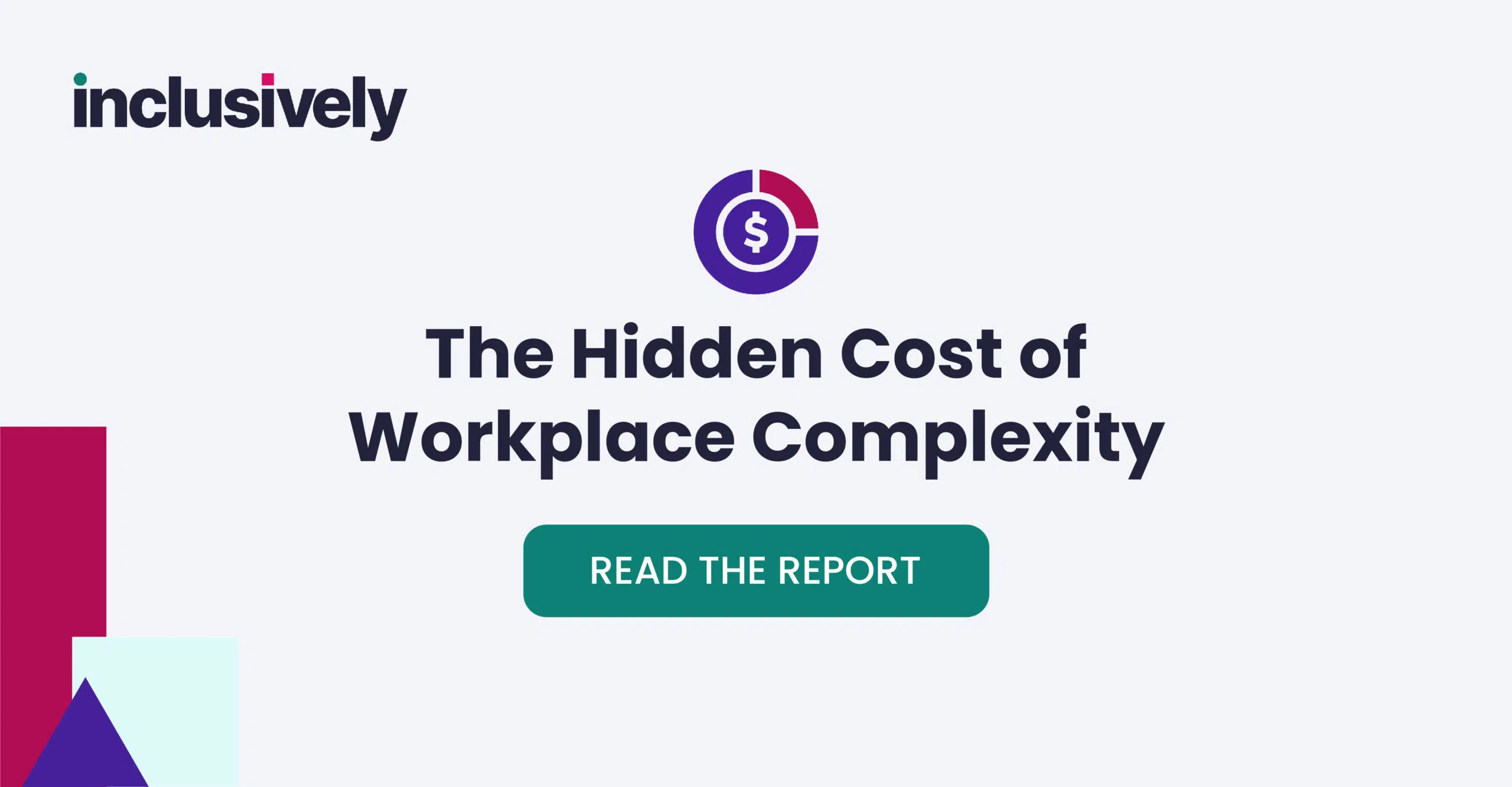As one of Inclusively’s first and most inclusive Employers, we’re thrilled to highlight Schwab’s inclusive hiring practices and company culture directly from their Diversity & Inclusion team. In this Q&A with Workplace Accommodations Program Manager Walter Donovan III, he shares advice to job seekers and how Schwab is creating a more inclusive and accommodating workplace.
Please share more about yourself and about your current role at Schwab.
I currently work as a Workplace Accommodations Program Manager as part of the Diversity and Inclusion team where I’m identifying areas of opportunity to make Schwab’s products and services more accessible to both clients and employees with disabilities. I’m also working closely with our Neurodiversity at Work initiative that we’re in the process of setting up here at Schwab for employees who are neurodivergent and am excited about this program as are many internal Schwab partners with whom I collaborate. I’m a forty-six year old Caucasian blind man who lost all his useable sight eleven years ago from a degenerative eye condition known as retinitis pigmentosa, which involves the breakdown of photoreceptor cells (rods and cones) in the retina, resulting in loss of night vision, peripheral vision, then central vision. I use screen reading software that enables me to use a computer and perform my core job functions. It’s largely due to my own experience with vision loss and having to find work that I’m passionate about disability advocacy and the need to make work environments more accessible and inclusive for people with disabilities. I spent several years working as a state vocational rehabilitation counselor in Arizona before working for five-plus years as an Accommodations specialist for another Fortune 500 financial institution before starting with Schwab in January 2022.
What are some of the things you look for in an employer when deciding whether or not you want to work for them?
What I mainly look for with any employer is what their culture is like, what their values are, and whether or not I can be my best self at work without having to compromise my own values, which include having empathy for others while acting ethically in navigating a sustainable work/life balance. It’s also important, I feel, to never underestimate the gut feeling you get when researching an employer and how you feel when speaking with the people who work for them because you’re interviewing them as much, if not more so, as they’re interviewing you. At Schwab, one of their core values is to look at things through their clients’ eyes, and based on the interactions I’ve had and partnerships I’ve established thus far, I really feel like we mean it. I can be my best work self where my knowledge and expertise are greatly valued by my peers and those in leadership. I even noticed this during the interviewing phase with the recruiters and hiring managers, that there’s a real authenticity here that I didn’t necessarily find with many of my prior employers. I feel very supported at Schwab and have felt very comfortable disclosing my own disabilities as a blind individual with OCD, the latter condition of which I’ve never disclosed to any employer before Schwab. And the reason I have disclosed these things is because Schwab is an employer that truly believes you benefit from a diverse workforce consisting of people with different experiences and backgrounds, that it can be truly leveraged as a competitive advantage in an ever-changing marketplace where innovation and adaptability are paramount to survive and thrive.
As a person with a disability, how do you assess disability inclusion efforts today in corporate culture from when you first started your career and how do you envision these efforts advancing?
It’s definitely been a fascinating journey because when I entered the corporate workforce in the late-90’s, working for various publishing firms and media outlets in New York as an ad coordinator and freelance copywriter, I oftentimes would pass as a sighted person during interviews while hiding my collapsible red and white cane in my briefcase because I felt I had lost job opportunities whenever I disclosed my vision condition to headhunters and hiring managers. I had useable vision then where I was able to do this but it never felt right because I felt like I couldn’t be my full self at work. My fears of discrimination due to my vision loss were confirmed when a direct manager for a publishing firm said to me directly she felt deceived that I didn’t disclose my condition during the interview, and when I asked if she would’ve hired me if I had disclosed it, she said she didn’t know. That was in late-2000/early-2001. The ADA had been passed a little more than ten years earlier but the employers I encountered weren’t really mindful of workplace accommodations other than asking if the lighting was ok in my workstation. When I was contacted by a Schwab recruiter about this position in late-2021, one of the preferences listed in the job requisition was that a lived experience with a disability was preferred. In twenty years time, I went from having to hide my disability lest I lose out on a job opportunity to being able to leverage it with a top global financial services firm. This illustrates how far we’ve come in corporate America in making workplaces more inclusive for people with disabilities. There’s more work to do, obviously, and what I’d ideally like to see are more robust Accommodations programs and inclusive design efforts to support employees at work while making disability awareness training required for all corporate stakeholders given the prevalence of disability in the human experience. We’re not there yet but it’s something to which we can aspire, and I know it’s something we’re moving towards at Schwab.
What are some of the benefits of hiring people with disabilities and why should organizations make this a priority?
There are various sources that show anywhere from 20-25% of people in the United States are living with a disability, many of whom are of working age, and that over one billion people worldwide have a disability. This is a large talent pool of people with valuable skills that any company would be wise to tap into, and often, if they hope to remain viable, sustainable, and relevant in today’s constantly evolving marketplace. People with disabilities also have hundreds of millions of dollars in disposable income, and it oftentimes takes a workforce with people who experience disabilities to know how to innovate for this population. And in my own experience working with people with disabilities, I’ve found this population to be very resilient and adaptable in navigating their own unique life challenges, which is essential for any company’s workforce to be able to do to cope with the vicissitudes of a dynamic, globalized economy. In other words, it’s a no-brainer for companies to hire people with disabilities.
In your opinion, how committed is Schwab to creating a more inclusive work environment?
In my opinion, Schwab is very committed to creating an inclusive work environment. One of the reasons I say that is they created my position of Workplace Accommodations Program Manager, so I can specifically identify opportunities to make client-facing products and services, as well as processes for internal employees, more accessible and disability-friendly, putting me in a position as an influencer. Schwab recruited me because they value my knowledge and expertise in this area, so they’re literally putting their money where their mouth is in bringing me on as a salaried employee while walking the walk. Schwab’s leadership also places a lot of value in their Employee Resource Groups (ERGs), and the CSAN (Charles Schwab Abilities Network), an ERG for employees with disabilities and employees who have loved ones with a disability, will continue to be an integral partner as we bolster our disability-driven efforts, which include Neurodiversity at Work, Hiring Our Heroes, and our valued partnership with Inclusively.
What are some valuable tips you have for job seekers with disabilities wanting to either enter or re-enter the competitive, integrated workforce?
First and foremost, remain open to opportunities that you may not have ordinarily considered. For example, I wasn’t expecting nor had I considered working as a program manager of an initiative for neurodivergent employees as my next career move after my tenure as an Accommodations specialist for a well-known bank. But the more I learned of this opportunity at Schwab and the driving force behind it, the more I became fascinated and wanted badly to be a part of it. I also have a four-year-old son who was diagnosed with Autism around the time I learned of this opportunity at Schwab, so it just seemed to make sense, that divine intervention played a huge role. I also recommend putting yourself out there on LinkedIn and updating your profile and work history to illustrate your transferable skills. The recruiter from Schwab contacted me through LinkedIn because I kept my profile current and indicated I was open to new opportunities, which really took the hassle out of randomly applying to jobs on some of the other well-known job seeking sites. While using these sites can be beneficial, it can also become inefficient and a bit tedious. I also recommend letting friends, coworkers, and even family members know you’re looking for work opportunities as you never know from where the next serious lead will come. Lastly, and most importantly, I recommend having a good attitude when you’re actively searching for work, which can be very challenging given how discouraging it feels at times when you apply for positions and either don’t hear back or you interview well and don’t get a follow-up call from either the recruiter or hiring manager. The power of persistence, positivity and remaining open can’t be emphasized enough as these are essential in having a successful job searching experience towards landing the job that’ll be a great fit for you.
Thank you so much for sharing your great insight and advice with us, Walter! We’re excited to be partnered with such an accommodating and inclusive organization.
To view and connect to our open roles at Charles Schwab, click here.



